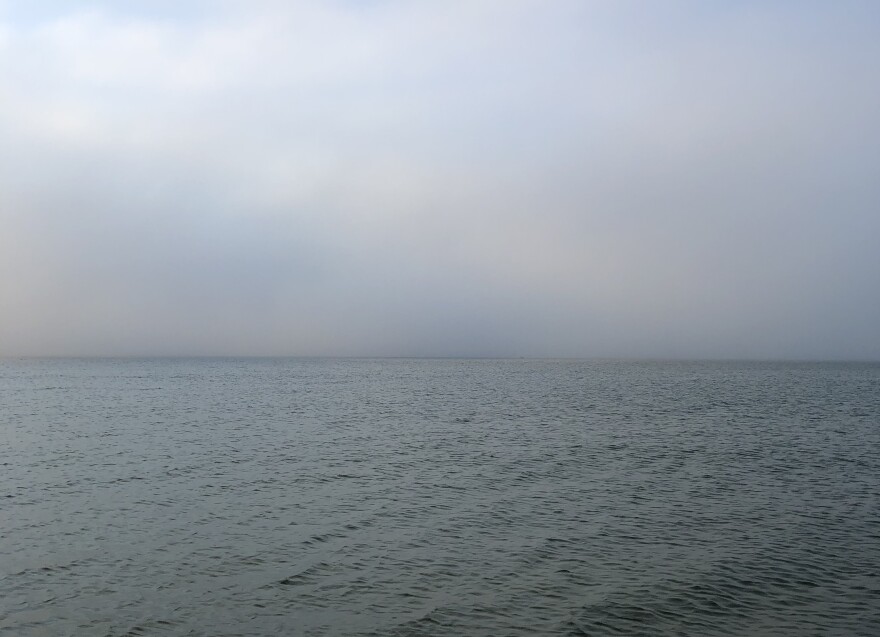I think about it for a moment. And then I run my hand down the worn wooden railing that leads down a half-dozen rickety steps to the beach. Down at the far end of the narrow path, a family waits until I pass, busying themselves with a honeysuckle vine that has tangled into the mother’s hair.
In years past, societal conventions had long been suspended at the seaside. Where else would scantily clad strangers read paperback novels nearly side-by-side? Now we warily keep a twelve foot radius from one another, as the signs instruct. We do the best we can. It is harder at high tide, when the sea encroaches on the shore. A woman in a black bathing suit with a yellow sundress billowing over her face sleeps in the sun while the incoming tide saturates the hem of her towel.
We are in a touchless society these days, except for the waves. On a day when the wind is quiet, they hold us, cradle us. We are suspended in the sea, weightless. Seaweed brushes legs, crabs have an uncanny knack for sniffing out toes. One stroke of luck this summer: those large lion’s mane jellyfish up in Cape Cod Bay have not yet visited us here on Nantucket.
A few Sundays ago, riding the outer bands of a since-downgraded tropical storm, the wind was blowing a gale, like a hot breath on the back of your neck. Thirty or more kitesurfers took to the seas at Pocomo, darting in out of the wake of passing boats. They looked like some sort of insect from far away, a water strider that skates miraculously across the thin surface of a pond. Little waves reached for my toes, smacked my stomach and arms as I went in swimming.
I have been trying and failing to remember the last hand I shook, the last friend I tapped on the shoulder in line at the post office. Perhaps that is why I am so struck with the physicality of the ocean, how it whirls around legs and lodges itself in ears. I have been body surfing more this year, seeing how far the waves will take me to the shoreline, and sacrificing my knees and elbows to the sand because of it.
And something else has changed about the beach, at least my relationship to it. In years past, a baseball cap rolling like a tumbleweed across the tidal flats, a faded-t shirt hanging from a snow fence, these things were all fair game to a beachcomber.
But is anyone still picking lost items up from the wrack line these days? On Nantucket, the swap shack has been closed for months. An entire season of spring cleaning, lost. I wonder if it will ever reopen. It is hard to imagine ever having the appetite to pick through a pile of clothes of unknown origin. What has become of all the piles of books, rising out of the floor like stalagmites? The swap shack was a last hope, a limbo, where they were either rescued and given a new life in a different beach bag, or chucked into the digester come Thursdays. We wait and see.
For now, the water on the north shore, Nantucket Sound, is a warm as a bath. People swim with friends and family, the water a buffer between them.
“This is the only place I feel normal,” I overhead a woman tell her companion the other day at high tide, her voice echoing off the water. It sounded like she was standing right next to me.







